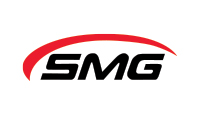April 9, 2015
Grant Money Available to Kentucky Municipalities
POSTED BY
William Shane, P.E.TAGGED
SHARE
Finding money to repair and/or upgrade infrastructure in order to meet new regulatory requirements can be tough for municipalities. One potential source of funding that should be considered is grants made through Section 319(h) of the Clean Water Act, which addresses nonpoint source pollution. Funding is provided by the EPA to the state and can be used for a wide variety of activities including technical assistance, financial assistance, education, training, technology transfer, demonstration projects and monitoring. Funds can be used to pay for 60 percent of the total cost of the project, while the remaining 40 percent requires a nonfederal match.
This funding is especially suited for municipalities with Municipal Separate Storm Sewer System (MS4) programs that need to address recurring or problematic sewer overflows. Many times these overflows are the result of nonpoint source pollution such as pasture grazing, land development, failing septic tanks, draining/filling of wetlands, and streambank modification. Nonpoint source grants can be a great way for municipalities to address sewer overflow issues and nonpoint source pollution at the same time.
Priority consideration will be given to applications for projects in 303(d)-listed impaired streams and protection of threatened Special Use Waters. A proposal for 2015 funding is due to the Division of Water by May 15, 2015.
Questions or need help with an application? Contact William Shane at williams@smithmanage.com.
